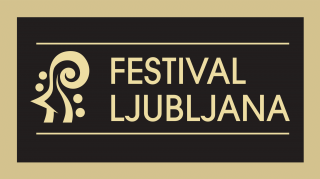Important information
Theresa Plut, soprano
Polona Gantar, organ
Programme:
Blaž Arnič: Concert Prelude for Organ
Srečko Koporc: Prologue and Fugue for Organ
Franc Šturm: Fantasia for Organ
Maks Strmčnik: As I Was Sleeping
Tomaž Svete: Two songs
Lojze Lebič: From the Medieval Garland
The repertoire for the organ – magnificent instrument and symbol of the sacred art of Western Christianity – is for the most part tied to performance in churches, and thus also to the rules of what is stylistically permitted and expressively appropriate for music in a sacred space. The Cecilian Society, founded in Ljubljana in 1877 on the model of the Cecilian Movement, a European movement for church music reform, responded to the need for a higher artistic level in sacred music by providing training at the Organ School of the Cecilian Society and by publishing the first Slovene musical journal Cerkveni glasbenik [The Church Musician]. Through his support, and a simultaneous relaxing of some of the rigid rules of Cecilian principles, Pope Pius X opened the way, in his 1903 motu proprio, to more modern sounds in church music. A key figure in the writing of this new chapter of Slovene church music in the first decades of the twentieth century was Stanko Premrl. Among his pupils at the Organ School was Blaž Arnič (1901–1970), today considered one of the most important Slovene symphonic composers. After graduating from the Ljubljana Conservatory he continued his musical studies in Vienna, where in 1931 he wrote his Concert Prelude. Srečko Koporc (1900–1965) was a pupil of Marij Kogoj’s and a radical follower of his expressionist circle; his composition Prologue and Fugue for Organ dates from 1929. The third figure in the trinity of the most influential composers and mentors of the interwar period is Slavko Osterc, whose pupils included Franc Šturm (1912–1943), who composed his Fantasia for Organ in 1934. For the last three pieces in the concert programme – more recent works – the outstanding organist Polona Gantar will be joined by the remarkable Canadian soprano of Slovene descent Theresa Plut. Maks Strmčnik (b. 1948) based his song Ko sem spala [As I Was Sleeping] on a text from the Song of Songs; Tomaž Svete (b. 1956) set a poem by Lev Detela for his Zwei Lieder [Two Songs]; Lojze Lebič (b. 1934) found inspiration in a collection of medieval lyrics, which also provided him with his title Iz srednjeveškega cvetnika [Florarium Mediaevale].


